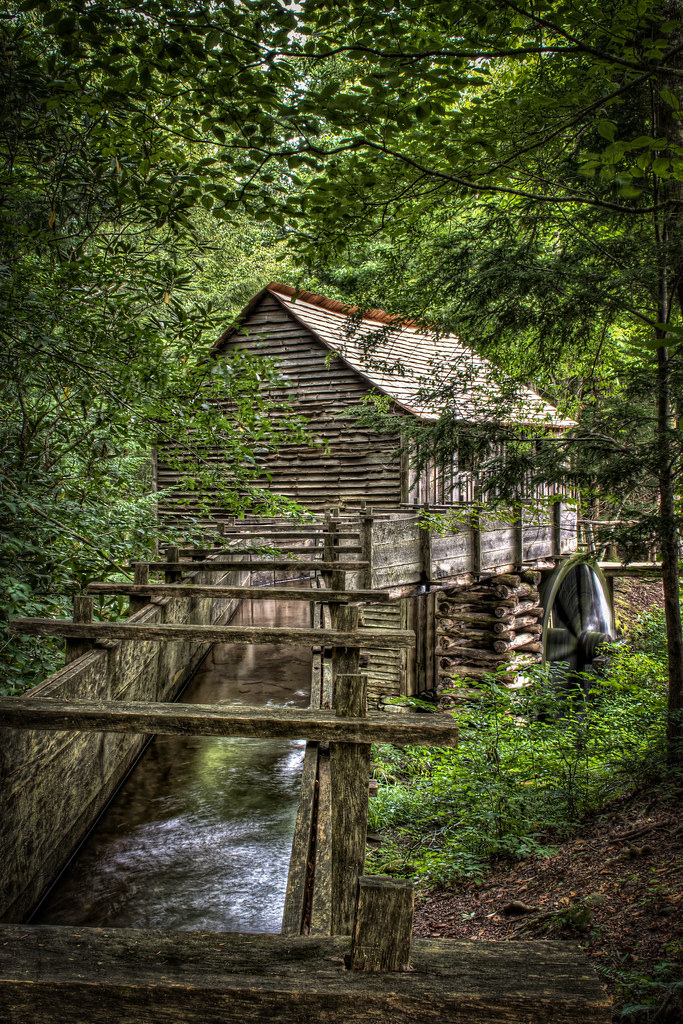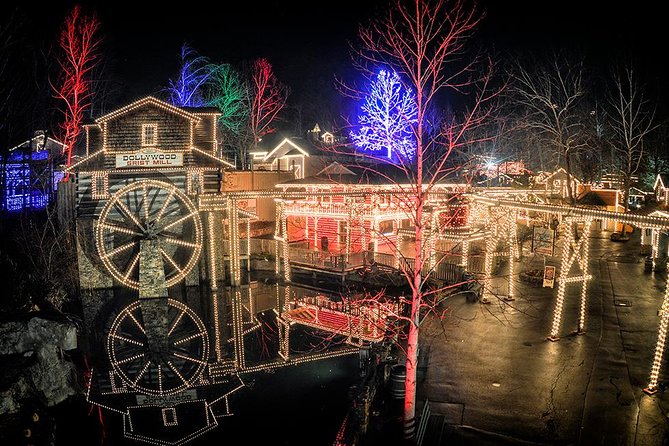Cable Mill A Must See In Cades Cove
The Cable Mill in Gatlinburg offers a unique opportunity to learn through experience. This historic site, located within the Great Smoky Mountains National Park, provides multiple educational programs at the Cable Mill that bring history, nature, and traditional crafts to life. This guide will explore the various educational offerings at the Cable Mill, making it a must-visit for families, history buffs, and curious travelers.

History of the Cable Mill
Origins and Significance
The Cable Mill, built in the early 1870s, stands as a testament to the ingenuity and resilience of the early settlers in the Smoky Mountains. Originally constructed by John P. Cable, the mill was a vital part of the community, providing essential milling services for corn and wheat. Understanding the origins of the Cable Mill offers a glimpse into the daily lives of the people who lived and worked in this rugged mountain region.
Restoration and Preservation
In the 1930s, the establishment of the Great Smoky Mountains National Park led to efforts to preserve historical structures like the Cable Mill. Today, the National Park Service maintains the mill, ensuring that it remains a living history exhibit. Restoration efforts have kept the mill in working order, allowing visitors to see firsthand how it operated over a century ago.
Historical Context
The Cable Mill is not just an isolated historical artifact; it is part of the broader history of Gatlinburg and the Smoky Mountains. The mill played a crucial role in the local economy and social life, serving as a gathering place for the community. Placing the Cable Mill within this historical context helps visitors appreciate its significance and the way it shaped the development of the area.






Educational Programs Overview
Types of Programs
The Cable Mill offers a variety of educational programs designed to engage and inform visitors of all ages. These programs include hands-on workshops, guided tours, and interactive demonstrations. Each program is crafted to provide a comprehensive understanding of the mill’s operation and its historical importance.
Audience
Educational programs at the Cable Mill are tailored for different age groups and interests. Whether you’re a school group, a family with young children, or an adult history enthusiast, there’s something for everyone. Programs are designed to be both educational and entertaining, ensuring that all participants leave with a deeper understanding of the mill and its history.
Learning Objectives
The primary goal of the educational programs at the Cable Mill is to offer immersive learning experiences. Participants will gain knowledge about historical milling techniques, the daily lives of early settlers, and the natural environment of the Smoky Mountains. These programs aim to foster a connection between visitors and the rich heritage of the region.









Interactive Demonstrations
Milling and Grinding
One of the highlights of visiting the Cable Mill is witnessing traditional milling techniques in action. Demonstrations show how water power is used to turn the millstones, grinding corn into meal and wheat into flour. These hands-on demonstrations provide an authentic glimpse into the past and illustrate the ingenuity of early American technology. The next two demonstrations vary on when they are available to see.
Blacksmithing and Metalwork
The Cable Mill also features blacksmithing demonstrations, showcasing the essential skills of metalworking that were vital to the community. Visitors can watch as blacksmiths forge tools, horseshoes, and other items using traditional techniques. These demonstrations highlight the craftsmanship and labor that were integral to daily life in the Smokies.
Weaving and Spinning
Another fascinating aspect of the Cable Mill’s educational programs is the weaving and spinning demonstrations. These programs focus on traditional textile production methods, showing how raw materials like wool and cotton were transformed into fabric. Visitors can try their hand at spinning and weaving, gaining a hands-on appreciation for these ancient crafts.
Nature and Ecology Programs
Flora and Fauna Tours
The natural environment surrounding the Cable Mill is just as important as the historical structures. Guided tours focusing on the local flora and fauna provide insight into the diverse ecosystems of the Smoky Mountains. These tours highlight the rich biodiversity of the area and the importance of conservation efforts.
Conservation Education
Educational programs at the Cable Mill also emphasize conservation practices and principles. Visitors learn about the efforts to preserve the natural and historical resources of the Great Smoky Mountains National Park. These programs aim to inspire a sense of stewardship and encourage sustainable practices.
Wildlife Observation
Opportunities to observe and learn about local wildlife are another key component of the nature programs. The Smoky Mountains are home to a wide variety of animals, including deer, black bears, and numerous bird species. Guided wildlife observation tours provide a chance to see these creatures in their natural habitat and learn about their behavior and ecology.
Historical Reenactments
Living History Events
Living history events at the Cable Mill bring the past to life through reenactments of historical events and daily life. These events feature costumed interpreters who portray the people who lived and worked at the mill. Visitors can interact with these characters, gaining a deeper understanding of the historical context and the challenges faced by early settlers.
Period Costumes and Tools
Reenactments at the Cable Mill are enhanced by the use of period-appropriate costumes and tools. These elements add authenticity to the experience, allowing visitors to see, touch, and even use the tools that were essential to daily life in the 19th century. The attention to detail in these reenactments helps to create an immersive educational experience.
Engaging with History
Engaging with history through reenactments provides a dynamic and memorable way to learn. Visitors can participate in activities, ask questions, and gain firsthand experience of historical practices. This interactive approach makes history accessible and exciting, especially for younger visitors who might find traditional methods of learning less engaging.
Workshops and Hands-On Activities
Craft Workshops
The Cable Mill offers a range of craft workshops that allow visitors to learn traditional skills. These hands-on activities include basket weaving, pottery, and woodworking. Participants can create their own crafts to take home, providing a tangible connection to the skills and techniques of the past.
Cooking and Food Preservation
Programs on historical cooking methods and food preservation techniques are another popular offering. These workshops demonstrate how early settlers prepared and preserved their food using traditional methods. Visitors can try their hand at these techniques, gaining an appreciation for the resourcefulness and ingenuity of the past.
Children’s Activities
Kid-friendly workshops and activities are designed to engage younger visitors and make learning fun. These activities often include hands-on crafts, games, and interactive demonstrations tailored for children. By participating in these programs, kids can learn about history and nature in an engaging and enjoyable way.

Visiting the Cable Mill
Location and Access
The Cable Mill is located within the Great Smoky Mountains National Park, easily accessible from Gatlinburg. Directions and tips for accessing the site are available on the park’s website. Visitors can drive to the mill, with ample parking available nearby at the Cades Cove visitors center.
Hours and Admission
The Cable Mill is typically open year-round, with specific operating hours that vary by season. Admission to the mill is free, although some special programs and workshops may have a fee. It’s recommended to check the park’s website for the latest information on hours and fees.
Facilities and Amenities
The Cable Mill offers a range of facilities and amenities to ensure a comfortable visit. These include restrooms, picnic areas, and a visitor center with educational exhibits and information. The site is designed to be accessible for all visitors, with pathways and facilities that accommodate those with mobility needs.
Preparing for Your Visit
What to Bring
For a comfortable visit to the Cable Mill, it’s recommended to bring comfortable walking shoes, weather-appropriate clothing, water, and a camera. Additional items like sunscreen, hats, and insect repellent can enhance your experience, especially if you plan to participate in outdoor activities.
Safety Tips
Safety considerations are important when visiting a historical site. Visitors should be mindful of uneven terrain, working machinery, and wildlife. Staying on designated paths and following posted guidelines can help ensure a safe and enjoyable visit.
Weather Considerations
The weather in the Smoky Mountains can change quickly, so it’s important to be prepared for different conditions. Checking the forecast before your visit and dressing in layers can help you stay comfortable. Rain gear is also advisable, as the area is known for its frequent showers.
FAQ Section
Q: What educational programs are offered at the Cable Mill?
A: Programs include milling demonstrations, blacksmithing, weaving, nature tours, and historical reenactments.
Q: Are there activities for children at the Cable Mill?
A: Yes, there are kid-friendly workshops and hands-on activities designed for young visitors.
Q: What should I bring for a visit to the Cable Mill?
A: Comfortable walking shoes, weather-appropriate clothing, water, and a camera are recommended.
Q: Is there an admission fee for the Cable Mill?
A: Admission is typically free, but some special programs and workshops may have a fee.
Q: Can I participate in hands-on activities at the Cable Mill?
A: Yes, many programs offer hands-on opportunities, including craft workshops and cooking demonstrations.
Learn With Educational Programs at the Cable Mill
The Cable Mill in Gatlinburg offers a rich educational experience, blending history, nature, and traditional crafts. Whether you’re a history enthusiast, nature lover, or family looking for a fun and educational outing, the Cable Mill has something for everyone. Ready to learn through experience? Discover the educational programs at the Cable Mill today.



Leave a Reply